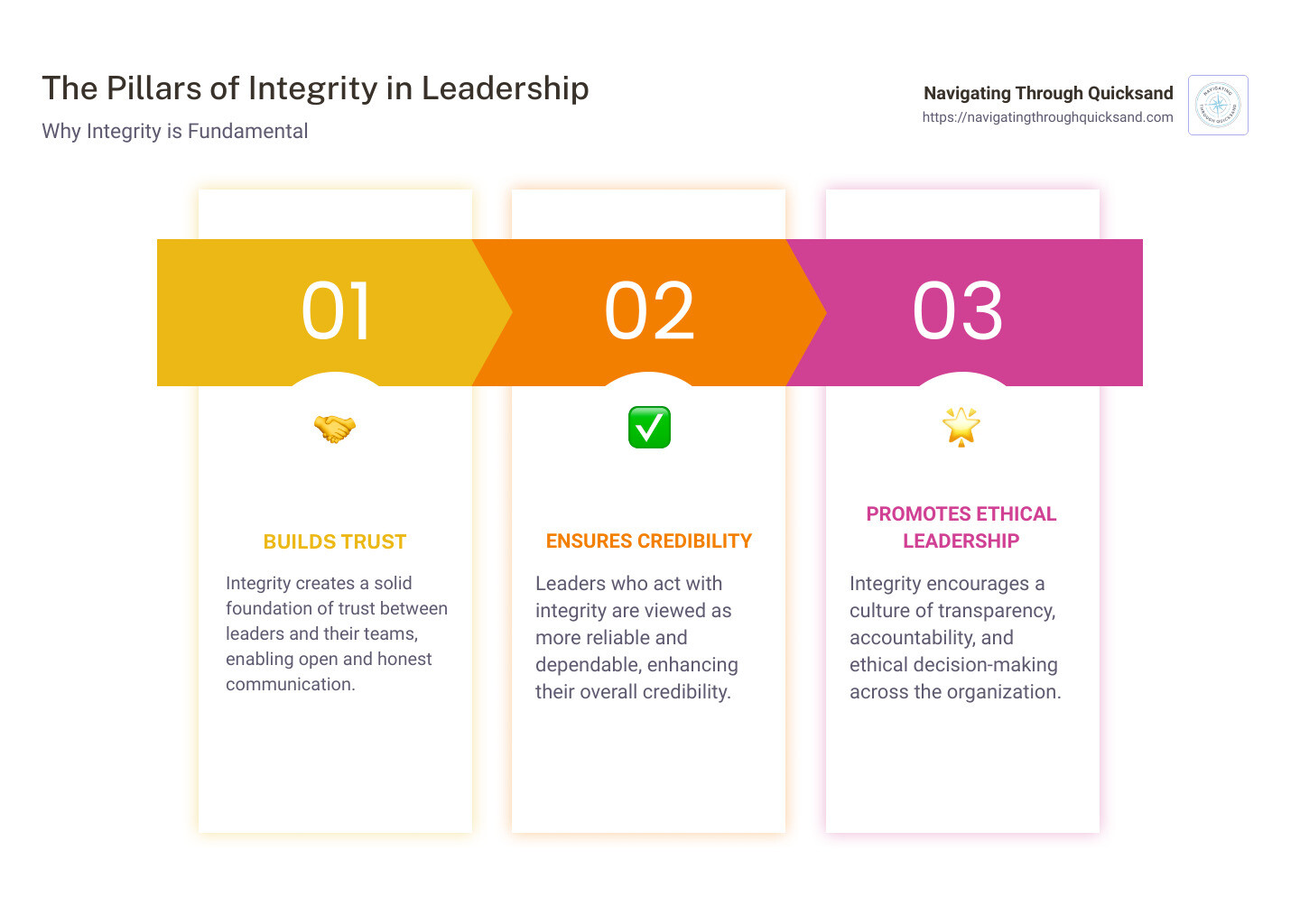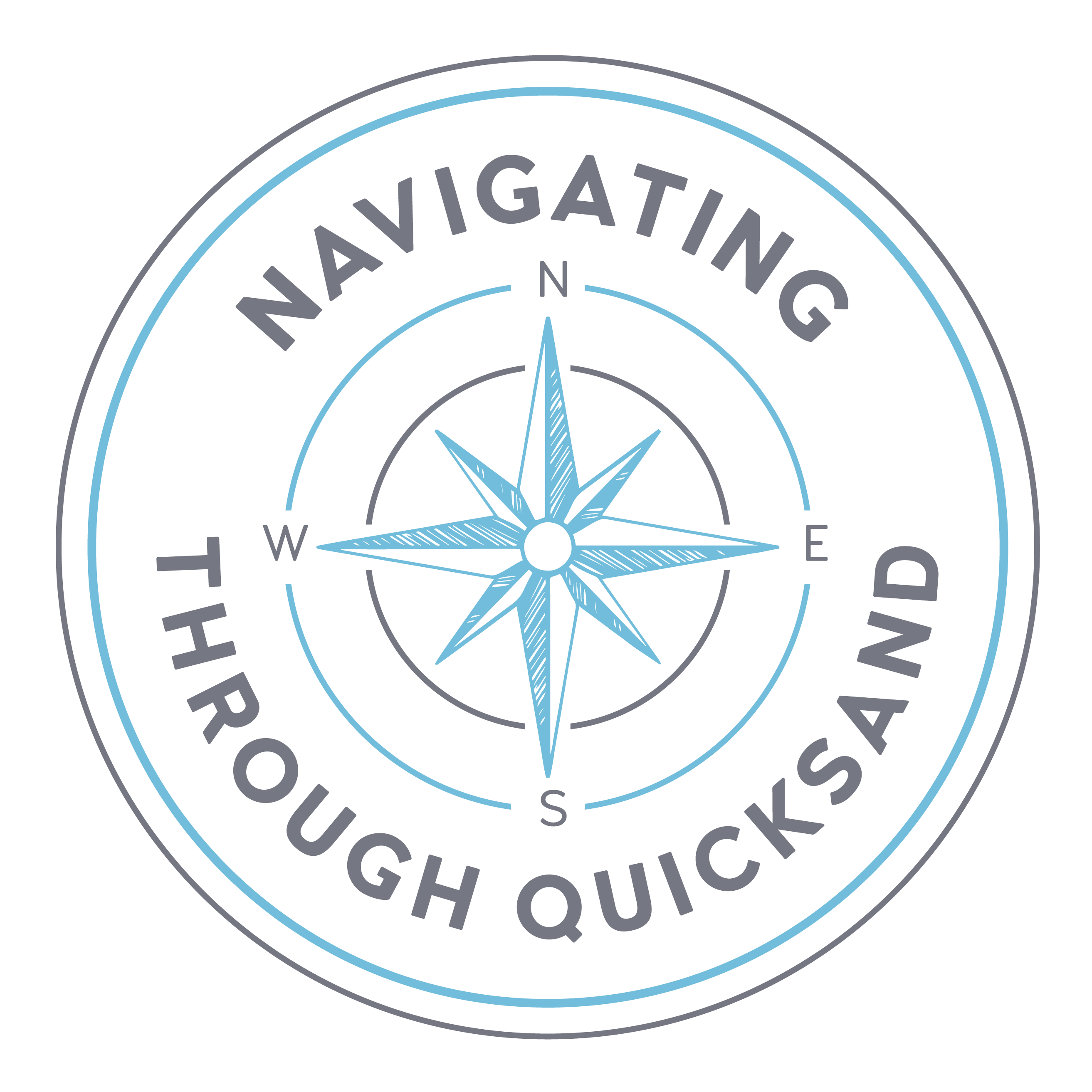In our world filled with challenges and the constant need for growth, integrity in leadership serves as a guide and a reliable foundation. For professionals in New England, recognizing the importance of integrity in leadership can be the key to turning daunting challenges into opportunities for personal success.
Personal integrity in leadership isn’t just about doing the right thing when observed but maintaining honesty and moral principles even in tough times. It forms the basis of ethical leadership, fostering trust within teams and the organization, which in turn encourages genuine relationships and open communication.
This credibility of a leader, established through trust and integrity, sets a strong example for the team, promoting similar standards. This cultivates a work environment where individuals feel valued, listened to, and respected, ultimately fostering collaboration and innovation.
Why is integrity important in leadership?
- Builds Trust: Integrity is the foundation of a strong relationship between leaders and their teams.
- Ensures Credibility: Leaders with integrity are seen as dependable and true to their word.
- Promotes Ethical Leaders: It encourages a culture of honesty and accountability, setting a moral example for others.
- Creates a Positive Environment: An integrity-led approach creates a safe and transparent work atmosphere.

As we dive into this complete guide, remember: embodying integrity as a leader isn’t just about fostering professional success; it’s about contributing to an environment where each individual has the opportunity to thrive and grow, both personally and professionally.
Table of Contents
Importance of Integrity in Leadership
Integrity is fundamental in leadership, embodying honesty, consistency, and moral principles. Leaders who demonstrate unwavering integrity set the stage for trust and respect within their teams.
Their commitment to ethical behavior not only fosters a positive work environment but also serves as guidance for all involved parties.
Why Integrity Matters for Professional Success
When we talk about why is integrity important in leadership, we’re really diving into the heart of what makes a workplace thrive. Let’s break it down into the key areas: Workplace performance, Trust and satisfaction, Positive workplace behaviors, and Company loyalty.
Workplace Performance
Imagine a team that knows its leader always does the right thing, no matter who’s watching. This leader makes decisions based on what’s fair and just, rather than what’s easy or beneficial to them personally.
The result? A team that’s motivated to work harder, innovate more, and push the boundaries of what’s possible. Studies show that teams with high-integrity leaders often outperform others because they operate in an environment of trust and respect.
Trust and Satisfaction
Trust is the glue that holds teams together. When business leaders act with integrity, they lay a foundation of trust that makes everything else easier—communication, conflict resolution, and even navigating tough times. This trust leads to higher job satisfaction among team members. They feel valued and respected, which in turn makes them more committed to their work and their team.
Positive Workplace Behaviors
Effective leaders understand the importance of leading by example. They show that it’s not just about hitting targets and making profits; it’s about how you get there.
This encourages positive workplace behaviors among team members. They’re more likely to help each other, speak up about issues, and contribute to a positive, ethical work environment. Integrity breeds more integrity, creating a virtuous cycle that benefits everyone.
They consistently act in line with their moral values, accepting responsibility for their actions and decisions. By demonstrating integrity in both words and deeds, they cultivate a culture of accountability and trust among their direct reports and all employees.
Company Loyalty
Finally, integrity has a direct impact on company loyalty. Employees are not just loyal to a paycheck; they’re loyal to leaders who treat them well and to companies that stand for something good. When leaders demonstrate integrity, they’re showing that they care about more than just the bottom line—they care about their people and the broader impact of their actions. This builds a strong sense of loyalty and belonging among team members, making them more likely to stick around for the long haul.
In conclusion, integrity is not just a moral choice; it’s a strategic one. It’s about building a foundation of trust, respect, and ethical behavior that leads to better performance, higher satisfaction, positive behaviors, and deep loyalty. As we move into the next section, integrity is at the core of not just navigating challenges but thriving through them. It’s what separates the good leaders from the truly great ones.
Building a Culture of Integrity
Creating a culture of integrity within an organization isn’t just about avoiding bad behavior. It’s about fostering an environment where ethical conduct is the norm and where every decision reflects the core values of the organization. Here’s how leaders can build this culture:
Ethical Culture
An ethical culture means more than just having a set of rules. It’s about creating an environment where doing the right thing is encouraged and celebrated. Leaders play a key role in this by:
- Setting clear expectations: Make sure everyone knows what’s expected in terms of ethical behavior. This can be done through codes of conduct, but also through regular communication and training.
- Leading by example: Actions speak louder than words. If leaders demonstrate ethical behavior in their decisions and actions, it sets a powerful example for the rest of the organization.
Organizational Ecosystem
Think of your organization as an ecosystem where everything is connected. The health of this ecosystem depends on:
- Transparency: Being open about decisions, especially those that affect your team, builds trust. It shows that you’re not just making decisions based on what’s good for you, but what’s good for the organization.
- Accountability: When mistakes happen, owning up to them shows integrity. It also teaches a valuable lesson about responsibility and learning from errors.
Emotional Intelligence
Understanding and managing your own emotions, and recognizing and influencing the emotions of others, is crucial. Emotional intelligence helps leaders:
- Navigate difficult conversations: Discussing ethical dilemmas or calling out unethical behavior is challenging. Emotional intelligence allows leaders to approach these conversations with empathy and clarity.
- Build stronger relationships: Trust is built on understanding and connection. Emotionally intelligent leaders can form deeper bonds with their team, making it easier to foster a culture of integrity.
Decision-making
Every decision a leader makes can impact the culture of integrity. Here are some tips for ethical decision-making:
- Consider the consequences: Think about the short and long-term effects of your decisions on all stakeholders.
- Seek diverse perspectives: Involve others in your decision-making process. This can help you see different angles and potential impacts you might not have considered.
- Be consistent: Apply the same ethical standards to every decision you make. Consistency shows that your commitment to integrity isn’t just for show.
Building a culture of integrity is not a one-time task but a continuous effort. It requires commitment from the top down and the willingness to do the right thing, even when it’s hard. By fostering an ethical culture, creating a healthy organizational ecosystem, practicing emotional intelligence, and making ethical decisions, leaders can build a foundation of trust, respect, and integrity that permeates the entire organization.
Remember that integrity isn’t just about facing challenges head-on; it’s about using those challenges as opportunities to reinforce and demonstrate your commitment to ethical leadership. This commitment not only navigates the organization through tough times but also sets the stage for sustained success and growth.
Role of Integrity in Navigating Challenges

In the face of crisis, uncertainty, and risk, a leader’s integrity becomes their most reliable compass. This section explores why is integrity important in leadership when navigating through tough times, much like finding a path through quicksand.
Adapting to Crisis
When a crisis hits, it’s easy to panic. But leaders with integrity stay calm and focused. They understand that their actions and decisions set the tone for the rest of the team. By adhering to their moral principles, they ensure that every step taken is not just a reaction to the crisis but a thoughtful move toward a solution. This approach not only helps in adapting to crisis but also in maintaining the trust and respect of the team.
Managing Risk
Risk is an inevitable part of leadership. However, managing risk doesn’t mean avoiding it altogether. It means making informed decisions that align with both the organization’s goals and ethical standards. Leaders with integrity do not take shortcuts or make decisions that compromise their values. They understand that their commitment to doing what’s right, even when it’s difficult, is crucial for long-term success.
Navigating Uncertainty
Uncertainty can be paralyzing. But for leaders with integrity, it’s an opportunity to demonstrate their steadfast commitment to their values. They communicate openly with their team, sharing both challenges and potential solutions. This transparency helps to alleviate fears and fosters a culture of trust. Navigating uncertainty with integrity means making decisions that are not only good for the organization but also for its people and the community at large.
Navigating Through Quicksand
The metaphor of navigating through quicksand perfectly encapsulates the role of integrity in leadership. Just like moving through quicksand requires calm, deliberate actions, leading with integrity requires a careful balance of ethical decision-making and risk management. It’s about knowing when to stand firm on your principles and when to adapt your strategies to meet the challenges head-on.
Leaders who navigate challenges with integrity inspire their teams, build lasting trust, and create a legacy of ethical leadership. They prove that it’s possible to achieve success without compromising on values. In doing so, they not only steer their organizations through immediate crises but also lay the foundation for sustained growth and success.
As we delve into the next section, we’ll explore practical strategies for cultivating integrity as a leader. It’s one thing to understand the importance of integrity; it’s another to live it out every day.
How to Cultivate Integrity as a Leader
Cultivating integrity isn’t just about knowing why is integrity important in leadership; it’s about putting it into action. Here are key ways to do just that:
Accountability
- Own Your Mistakes: When things go wrong, don’t look around to pass the blame. Own up to your mistakes, fix them if you can, and learn from them. This shows you’re human and trustworthy.
- Encourage Openness: Make it safe for your team to admit their mistakes too. This fosters an environment of trust and continuous improvement.
Setting an Example
- Walk the Talk: Your actions speak louder than words. If you expect honesty and ethical behavior from your team, you need to demonstrate those qualities yourself. Avoid negative workplace behaviors like gossiping or cutting corners.
- Be Consistent: Your team is watching. Consistency in your actions and decisions, aligned with the organization’s values, reinforces what you stand for.
Following Through on Commitments
- Keep Your Promises: If you say you’re going to do something, do it. This builds reliability and trust with your team.
- Recognize Your Limits: It’s better to say no than to overcommit and underdeliver. Knowing and respecting your limitations is a sign of wisdom and integrity.
High Moral Standard
- Define Your Values: Know what you stand for. Reflect on your values and principles, and let them guide your decisions and actions.
- Act Ethically: Always aim to do the right thing, even when it’s hard or when no one is watching. This builds a reputation of integrity and trustworthiness.
By focusing on these areas, you can cultivate a leadership style that’s rooted in integrity. Leading with integrity might not always be the easiest path, but it’s the one that earns the respect and loyalty of your team, and ultimately, drives long-term success.
We’ll address some frequently asked questions about integrity in leadership, shedding light on its role in servant leadership, ethical decision-making, and its impact on team dynamics and organizational success.
Conclusion
In our journey through the significance of integrity in leadership, we’ve uncovered that a steadfast commitment to values-based leadership is at the heart of impactful leadership. This approach isn’t just about making the right choices; it’s about embedding those choices into the fabric of our character, influencing every action we take and every decision we make.
At Navigating Through Quicksand, we believe in the power of personal growth coaching as a tool for nurturing this kind of leadership. Coaching isn’t just about enhancing skills or achieving career milestones; it’s about deep, transformative growth that aligns your actions with your values. It’s about becoming the kind of leader who not only navigates challenges with grace but also empowers others to do the same.
Empowering individuals is at the core of what we do. We understand that every person has the potential to make a significant impact, both in their personal lives and in the wider world. But unlocking this potential often requires guidance, support, and the courage to act with integrity even when faced with difficult choices.
Let’s commit to being leaders who act with honesty, uphold strong moral principles, and empower others to do the same. Are you ready to lead with integrity and make a positive impact? Join us on this journey of personal growth and ethical leadership. Let’s grow and empower together.
Frequently Asked Questions about Integrity in Leadership
Integrity in leadership isn’t just a nice-to-have; it’s essential. Let’s dive into some common questions about why integrity is important in leadership.
Why is integrity important in leadership?
Because it’s the glue that holds all these elements together. Integrity in leadership fosters a culture of trust, encourages ethical behavior, and guides the organization towards long-term success. It’s about being a leader who not only aims for success but does so with honor and respect for others.
Keep in mind that cultivating integrity as a leader is a journey, not a destination. It’s about making a commitment to live by these principles every day, influencing those around you to do the same.
How does integrity contribute to making ethical business decisions?
Making decisions in business can be tough. You’ve got to think about what’s good for the company, the employees, and sometimes, the world. Integrity means you make these decisions based on honesty, fairness, and respect.
Leaders with integrity don’t cut corners or bend the rules for short-term gains. They think about the long-term impact of their decisions. This approach builds a reputation for the company that can attract more customers, better employees, and sometimes, even investors who want to be part of something good.
What impact does integrity have on team dynamics and organizational success?
Teams look up to their leaders. If a leader shows integrity, the team is more likely to do the same. This creates a positive work environment where everyone feels valued and respected.
When a team operates with integrity, they trust each other. This trust leads to better collaboration, more creativity, and ultimately, better results. It’s like a domino effect. One good deed leads to another, building a stronger, more successful organization.
In the end, integrity isn’t just about being a good person. It’s about creating a legacy. It’s about building something that lasts because it’s built on the right foundation. Whether you’re navigating through the quicksand of tough times or sailing smoothly, integrity is your compass.
Now, let’s move forward to wrap up our discussion on integrity in leadership and how it paves the way for a values-based approach to leading, personal growth, and empowering individuals to make a positive impact.
Our Content
Our content is carefully created and edited by Ashley Gustafson to ensure that the content is accurate, reliable, and up-to-date. Navigating Through Quicksand, LLC is a trusted inspirational woman, inspirational speaker, and personal development coach in Massachusetts for confidence coaching programs for women such as leadership workshops, communication workshops, low self-confidence programs, and more. Navigating Through Quicksand, LLC has empowered individuals with over 15 years of experience working with students and athletic teams from local communities.



